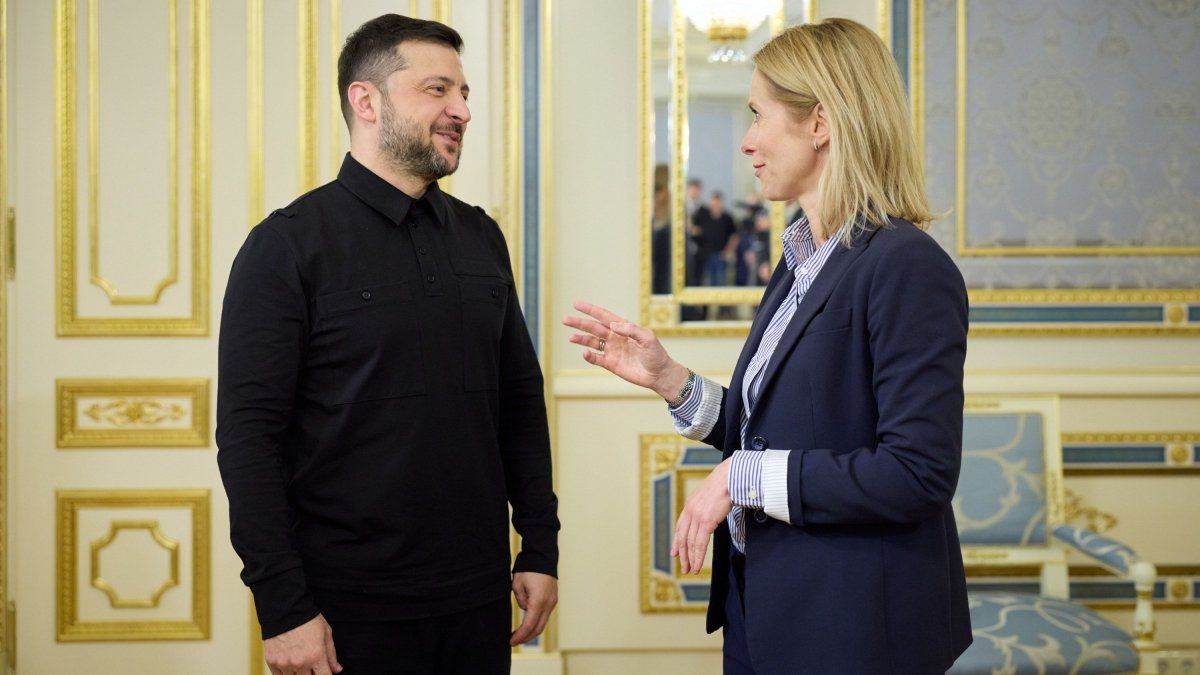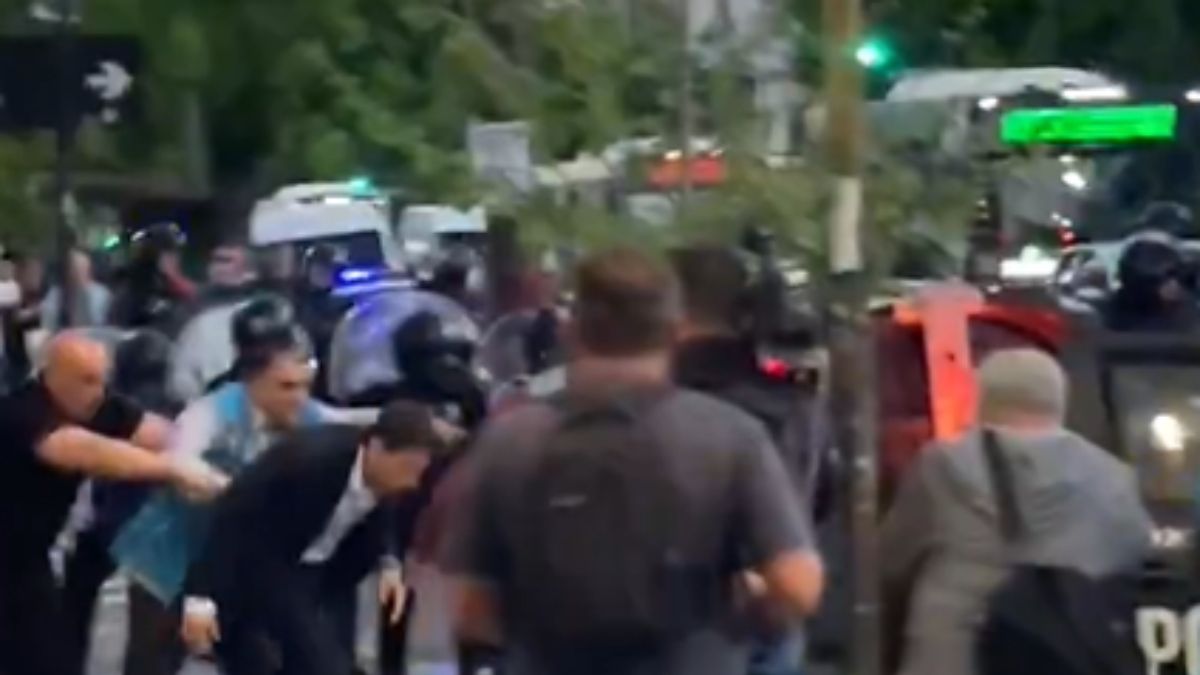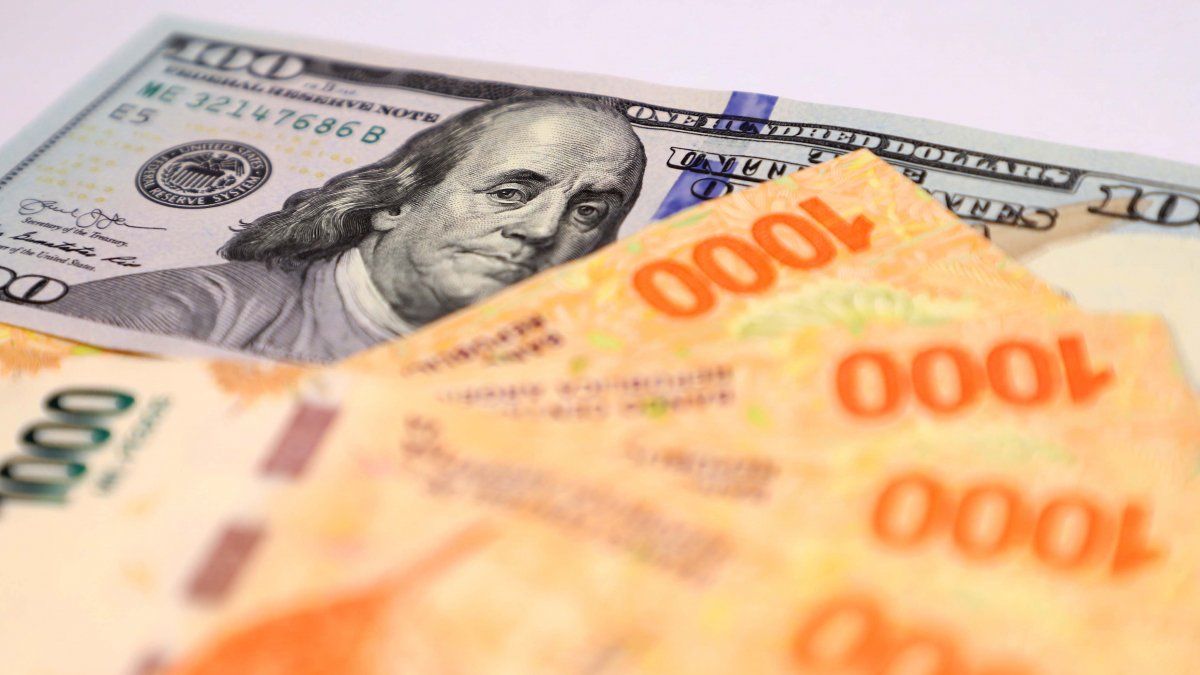Vertigo
The attack has given a new stitch to the political crisis. A month and a half ago, the center of the stage was occupied by Martín Guzmán, despite the fact that he did not have the support of Kirchnerism. An uninvestigated operation of a Banco Nación fund unleashed a currency run that caused the minister to resign without notice in the middle of a speech by the Vice President. The Central Bank hastened to rescue the bondholders of the debt in pesos with fictitious money, while the government could not find a minister to take charge of the run. They improvised Batakis, who was first sent to Washington and later compensated with the address of Banco Nación. To a certain extent, the government was in a state of acephaly, including the former president most loved by Argentines. Sergio Massa saw the opportunity to fight for the head of the Cabinet, with the promise of the company of a minister trusted by the IMF. If things went well for him, the path to candidacy for 2023 would be opened. He half achieved his purpose: he was made Super Minister of Economy and, after much fatigue, found a Vice Minister favorable to the adjustment, to the subsidy to the holders of public debt and a devaluation or, failing that, a breakdown of the legal exchange market. The bifrontal government became tri-frontal: a president with a pen; a vice with diminishing votes; and a super minister with contacts on Wall Street, in Houston – headquarters of oil and mining companies, and in Tierra del Fuego, where, according to gossip, friendly capitalists operate. The CGT bureaucracy accompanied the exchange run, that is, the bailout of bondholders and the promise of special dollars to an indefinite number of employers’ chambers, with a march in support of the government.
Semi-Bonpartism…
The calm achieved with the exchange of debt in pesos for a dual bond tailored to the creditors was interrupted by the request for conviction against CFK by prosecutor Luciani, who in his spare time plays soccer with a judge in the case in a Macri little court. A representative democracy that occupies the space between two arches and a locker room.
Kirchnerism cunningly did not challenge this conspiracy of prosecutors and judges in the investigation of the case, but three years later, with the request for conviction. He avoided a more pristine selection of actors. The shelving with which CFK responded to Luciani opened up a political role for the Vice, which was reinforced with a weak militant pilgrimage in Juncal and Uruguay and with the convening of a Buenos Aires PJ congress. The judiciary and the macrismo considered the return of Cristina Kirchner to the center of the scene a victory for them.
The assassination attempt on Thursday and the march of the PJ and the CGT on Friday have precisely placed CFK in the political center. In a couple of hours, Kirchnerism went from the inevitable defeat in the elections to the expectation, not of a victory, but of the return of Cristina Kirchner to the Presidency – with a cane, a pen and a national chain. On Friday, it filled Plaza de Mayo, through the mobilization of all its devices. Massa was relegated to the inside pages of newspapers and specialized financial newspapers. With an attempted murder in his hands, the phase of the Vialidad trial that begins on Monday is presented, in theory, as a cardinal’s bite for Kirchnerism. When political arbitration focuses on one person, it is a case of Bonapartism. Kirchnerism, as is obvious, does not control Congress nor has it turned the CGT into its own branch, and the beginning of the electoral campaign is distant. It is a Bonapartism with these limitations. But this limited Bonapartism represents a political turn of events with reference to the executive anarchy that Guzmán’s resignation unleashed. Although everything remains the same -unpayable debt, inflation, poverty, unemployment, devaluation of workers’ income-, the changes define a relatively new political situation. The economic crisis, seen in this context, reinforces the ongoing Bonapartist turn, because it is a resource that obviates political deliberation. Another fundamental thing: the further failure of Bonapartism leaves the political situation without a safety net.
The opportunity that Bonapartism has found makes it possible to characterize the crisis in which the opposition has entered; In yesterday’s session in Deputies, the Pro broke with his partners when he left the premises. The crisis crosses the UCR. Suárez from Mendoza and Morales from Jujuy did not adhere to Friday’s holiday; the extreme right Negri was fixed on his papers when Ritondo gave the order to leave; the neuroscientist Manes went through all the available sets to attack Macri, and refused to sign a JvC declaration against Alberto Fernández. Beyond the differences between their cliques, the macrismo represents the financial capital that negotiates the public debt and that is imposing its dominance in agribusiness. That is why he was betting on a collapse of the exchange rate and hyperinflation and the corresponding political consequences; is the most active trader in the dollar futures market. This has been delayed. On the other hand, the social and political differentiation that the collapse of the macrista management generated in JxC has been accentuated. The stage opened by the Gualeguaychú Convention, when the UCR en bloc handed over to Macri’s financial operators, is exhausted. The Trump wing of JxC experiences a setback. Since politics is refractory to emptiness, a combination of circumstances has offered Bonapartism a narrow window of opportunity. Argentina is going through all the stages of a terminal crisis of the political regime.
…spring Summer
The fashion season in the southern hemisphere follows the novelties of the one that won in the northern hemisphere. The worn-out Bonapartism that recent events seem to inaugurate does not offer a long-term course.
Friday’s march by the PJ, the CGT and the official social movements do not constitute a sufficient base. The contradictions within that bloc are manifest. The official bureaucracy resists the strike demanded by Moyanism and its allies – concerned about their own legal cases. It is probable that CFK will not encourage it either, attentive to the effects that it could produce, on the one hand in the process of Comodoro Py, on the other in the eventual bidders of dollars and the IMF. At the end of the day, the emissary of emerging Bonapartism has gone to the United States to ask for a “waiver” (pardon) from the IMF. The Monetary Fund and the US Treasury manage the VAR of political arbitration in Argentina.
As for the class struggle on the ground, the conflict in Neumático has made a political difference. With the support of Moroni, the Minister of Labor, the bosses of the sector have gone to seek the defeat of the Sutna’s plan of struggle, and therefore of Sutna itself. It is a degree change, but important, in the policy of the bourgeoisie against the labor movement. The conflict will focus, according to all indications, on the question of the lump-sum wage increase, to preventively contain the reaction of workers and unions when electricity and gas bills arrive, and cuts in education, health and disability. This increase is fervently demanded by Kirchnerism and K unionism, but it is resisted by employers and the CGT. The increase in salaries by decree would be a typical Bonapartist measure that does not have a majority among those who marched on Friday. The congress of the Buenos Aires Justicialismo could illustrate how these contradictions begin to be processed in the situation after the attack.
The spring-summer season is the autumn-winter season in Ukraine, Europe and the United States. The war between NATO and Russia will become more bloody; famine will take a huge leap; the wave of strikes taking place in Great Britain could lead, according to observers, to a general strike. In China itself, an unprecedented phenomenon is taking place – the recession and the bankruptcy of the great real estate octopuses. Bonapartism on native soil needs an international complement, which the government does not have at hand without provoking a clash with the powers in conflict that would further undermine Argentina’s financial conditions.
Kirchnerism is ideologically in retreat. On the occasion of the agrarian conflict over resolution 125, in 2008, Luis D’Elia declared his “hatred against the fucking oligarchy” – now he is victimized by the hatred that he attributes to macristas and the media against Kirchnerism. “The country is the other” has now become a crusade against “hate speech.” The effective social antagonism of capitalist society and the class struggle it generates have been sublimated, that is, deformed, as “speeches” against the “alien identity”. It is a confrontation of “perceptions” and “self-perceptions”, not a real and objective historical decline of capitalism, a hotbed of climatic crises, persecution and police brutality, economic and social decomposition, humanitarian crises and imperialist wars. The official left has joined this discursive alienation in all areas of society. On Saturday the 3rd, alienated by this discourse, she was not able to vote against the simulacrum of repudiation of the attack that the macristas and kirchneristas ‘cooked’.
The “cultural battle” is a huge fraud against workers, who more than ever need things to be said as they really are.
Source: Ambito




